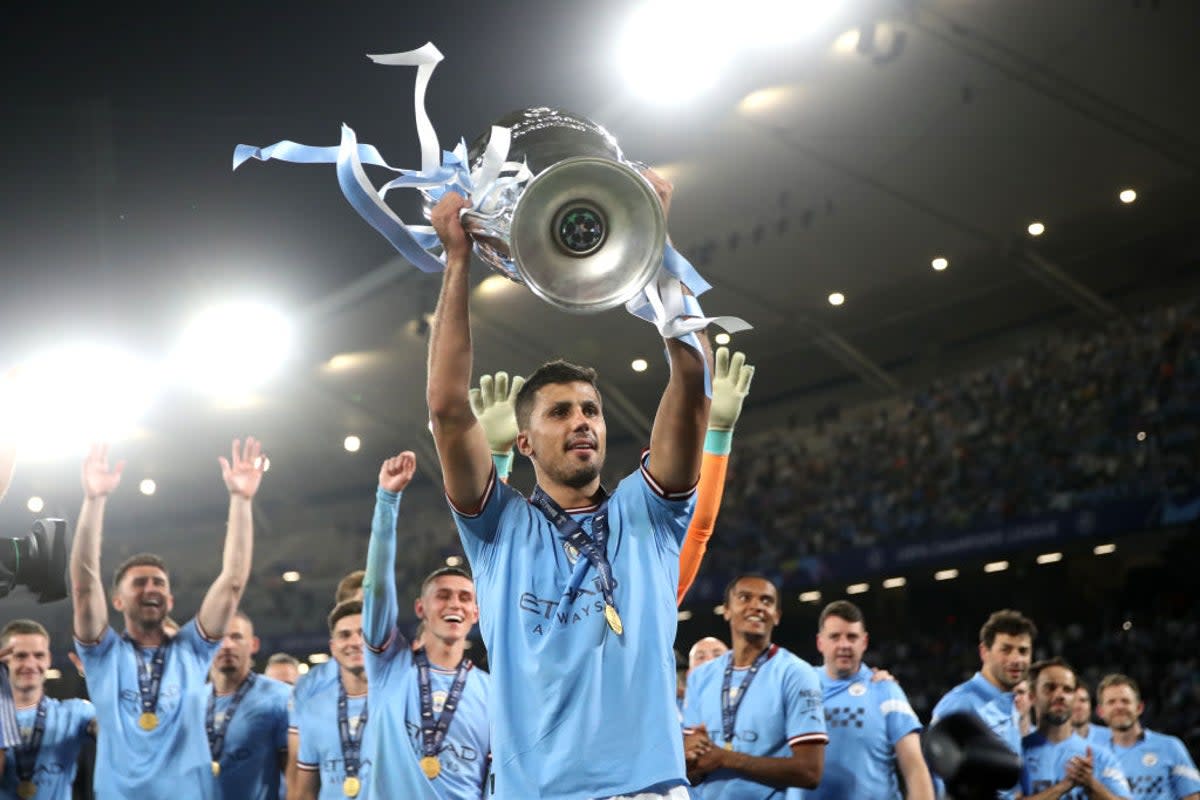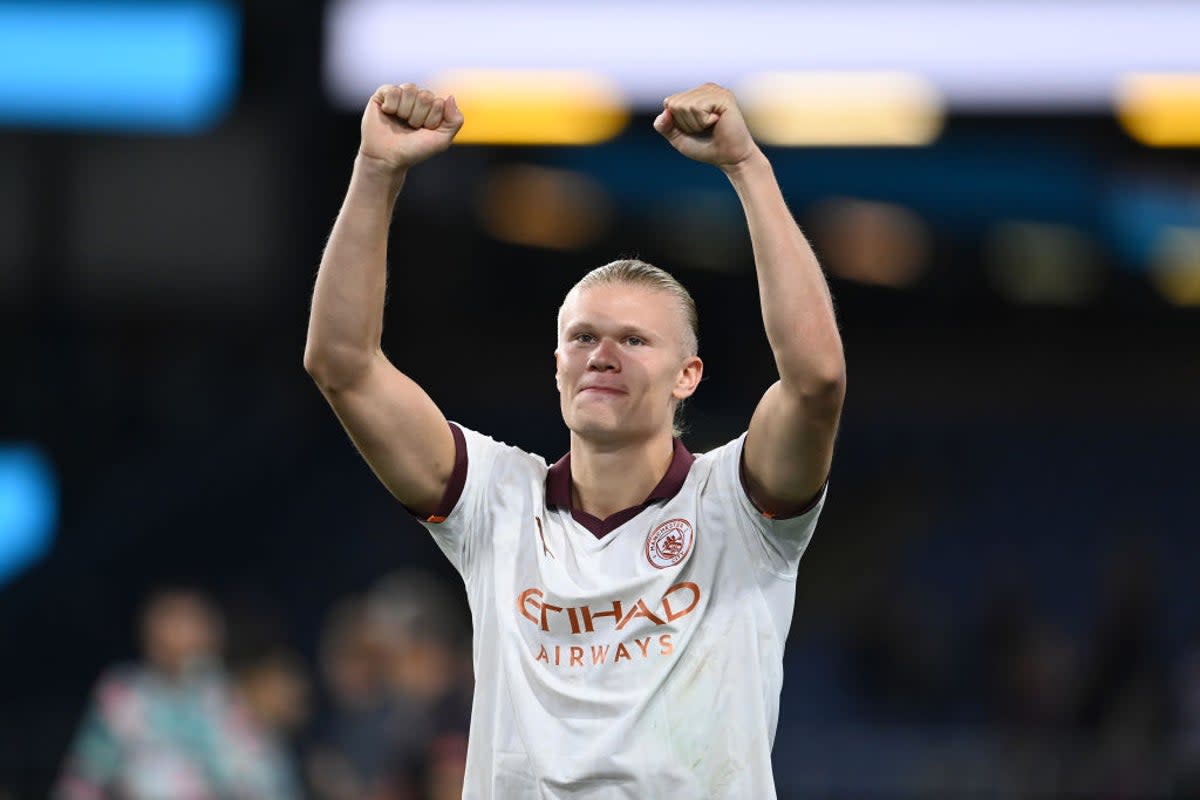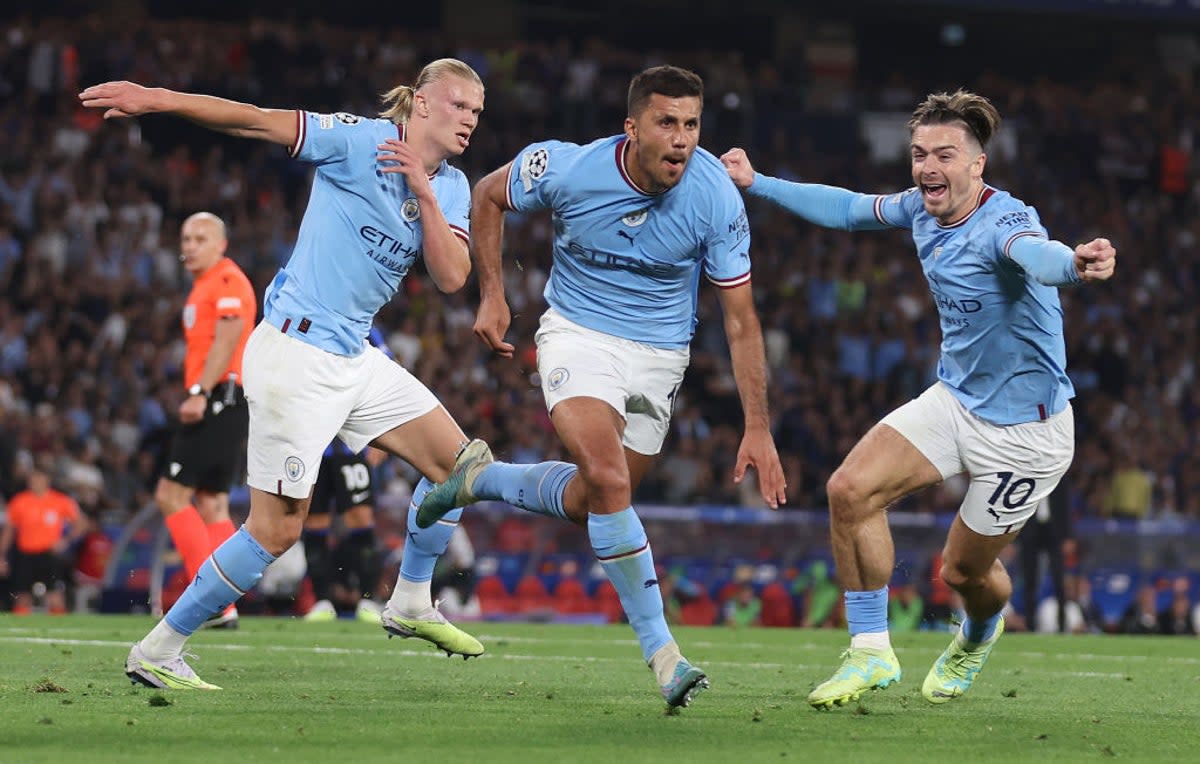Super Cup is crucial to Man City’s season but it’s not about the trophy

Manchester City have never enjoyed so many spoils of victory. Pep Guardiola has tended to be justifiably irritated by premature talk of trebles and quadruples in past seasons. His side at least ensured the idea of the septuple was taken off the table by losing the penalty shootout to decide the Community Shield.
But, for the fourth time in five matches, there is a trophy at stake when City take the field in Piraeus this evening. There is the chance to make history in a historic place: as the chief port of ancient Greece, spoils of victory used to pass through Piraeus regularly.
City have become the 23rd club to win the Champions League. They could become the 25th to lift the Uefa Super Cup. It is an eclectic list: for City the aim otherwise these days is not to emulate Mechelen or Aberdeen, let alone Zenit St Petersburg. There is a case for arguing it was the summit of the powers of Sir Alex Ferguson’s Aberdeen: they beat Bayern Munich on their way to the Cup Winners’ Cup final, then Real Madrid in the final, then European Cup winners Hamburg in the Super Cup.
It may not have the same significance for City: the Club World Cup, instead, is the prize that confers the ultimate title and, for both Liverpool in 2019 and Chelsea in 2021, it assumed a greater significance because their previous European champions had not claimed it. Guardiola’s Barcelona did twice: twin triumphs underlining the sense of an era of dominance by one exceptional team. That their victories came against Porto and Shakhtar Donetsk and that City face Sevilla now illustrates the reality that Europa League winners kick off as underdogs every time.
But the Super Cup can normalise the process of lifting silverware, something City have done in England: the Carabao Cup felt their private fiefdom for a few years. If it is worth remembering that, in 2020, City had a two-year ban from the Champions League, which Uefa imposed then overturned, and had that stood, they surely would not be in Greece this week. It is also worth noting that, as recently as 2020, City had been champions of England’s second division more often than its top flight.
Times have changed swiftly and if Saudi Arabia has displaced City as the more topical threat to the European aristocracy, the Super Cup is about more than a reunion with Jesus Navas, whose longevity is such that he won it in 2006. If finally claiming the Champions League was one breakthrough, City may be making another: in the global popularity contest.
On their pre-season tour, some 23,000 fans paid £20 each to watch them train in South Korea. They received a euphoric reception in Asia whereas, a few years ago, they were greeted by rather more indifference. Perhaps it simply takes time for even the richest to attract new support. Maybe, in the markets where players command more loyalty and intrigue than clubs, Erling Haaland is a transformational player in the wider battle for hearts and minds in a way some of their other greats have not been.

Sergio Aguero had a curiously small profile for a player of his calibre. David Silva wanted his to be so low it was subterranean. Kevin de Bruyne has always had an everyman quality, though a down-to-earth figure has been blessed with a magical right foot.
At times, Guardiola’s recruitment strategy has felt almost wilfully obstructive to the commercial department. For two clubs who are often bracketed together, for obvious reasons, City have sometimes seemed the anti-Paris Saint-Germain, eschewing superstars for expensive defensively-minded personnel.
Their biggest buy this summer is a centre-back, Josko Gvardiol, taking their complement to six. With De Bruyne injured, City are likely to be captained in Athens by Kyle Walker: a trailblazer when the £50m full-back was a new phenomenon, the Yorkshireman has demonstrated that recovery pace can be one of the most valuable assets in football.
And there was some vindication for Guardiola when City’s Champions League winner came from a £62m defensive midfielder. Rodri seemed overpriced when he arrived from Atletico Madrid. Four years later, he was named player of the tournament in both the Champions League and the Nations League.

Guardiola once said City need to win the Champions League for De Bruyne to claim the Ballon d’Or; not that it has ever appeared a particular motivation to the self-effacing Belgian anyway. Now Rodri and Haaland could have competing claims.
The Norwegian, with his giant frame, long blond hair, flamboyant dress sense and barely credible goalscoring feats, has become the flagship player City long lacked. Thus far, however, his 54 goals have included none in finals: not in the FA Cup, the Champions League or, less significantly, the Community Shield. Without De Bruyne, there may be still more onus on Haaland. But he faced Sevilla once last season and, as he did at Burnley on Friday, scored twice.
They got four goals that night. They may get a fourth trophy of this summer on Wednesday night.
